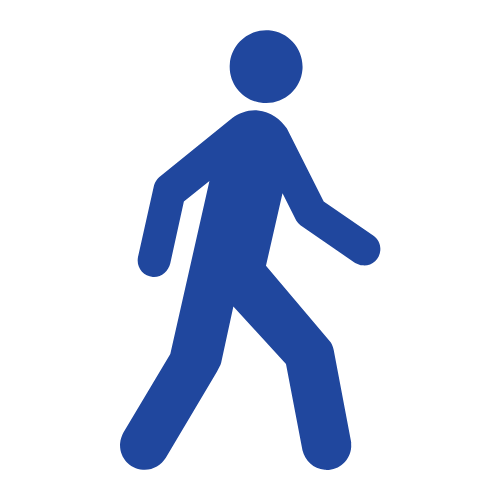As we age our bodies inevitably begin to show signs of wear and tear, muscle loss and joint stiffness cause us to slow down and the older we get, the more aware we become of our limitations. But it is never too late to make improvements to our health and mobility for a better quality of life.
The benefits of exercise are vital for healthy ageing
Exercise has benefits for everyone, whatever your level of fitness or mobility, and staying active is vital for healthy ageing. Anything that gets you moving can help in improving mobility in older age. From light housework to daily walks, stretching and moving our bodies on a regular basis has significant benefits for both our physical health and mental wellbeing.
The NHS recommends that adults over the age of 65 should aim to be physically active every day with at least some form of light activity which might include:

Making the bed

Getting up to make a cup of tea

Walking at a slow pace in the garden or around your home

Light housework such as vacuuming or dusting
Seated exercise for older people
Even people with reduced mobility can introduce sedentary chair-based exercise to increase flexibility and strength, balance and coordination. Download this NHS leaflet which illustrates how to perform a range of gentle seated exercises to help improve fitness and flexibility.
Age UK operates chair-based exercise classes for older people so you can enjoy some gentle fitness activity in a friendly and sociable environment, contact your local AGE UK for details of a class near you.
Improving your mobility in older age undoubtedly has a significant impact on how independent you can expect to be in later life and the more mobile you are, the less chance you have of suffering from a fall.
The National Institute for Aging suggests that more than one in three people over the age of 65 will suffer a fall each year which leads many older adults to lose confidence and be less likely to take part in social activities.
The older you get the higher the risk of falling becomes, particularly for people with long term health conditions.
Having a fall carries the significant risk of hip fracture which for many people is a life-changing injury. 500 older people are admitted into hospital every day with fall-related injuries which can be very difficult to overcome, of these 33 people never make it home.
Fall prevention tips:
Fortunately, there are many things you can do to help prevent a fall:
1. Stay active
Strengthening your body with regular exercise will improve your flexibility, balance and coordination giving you more confidence so you can continue to live an active life, it may also help reduce pain from joint stiffness.
2. Review your medication
Speak to your GP in case you are taking any medications which may cause tiredness or dizziness or other side effects which could contribute to your chances of falling.
3. Arrange an occupational health review
Your GP can arrange for you to receive an occupational health assessment to review whether modifications can be put in place in your home to help improve your day to day tasks such as personal care, shopping and cooking and moving in the home.
4. Remove potential trip hazards at home
Replace or repair anything that presents a potential risk of falling such as damaged or uneven flooring including stairs, tiles, carpet and rugs.
5. Have your eyes and ears tested
Ensuring your vision and balance are not affecting your chances of a fall.
For many families, conversations around the need for care services are often triggered when a loved one has suffered a fall, bringing to light the struggles they may be experiencing with everyday tasks or to provide care for a period of time while they recuperate. Having a live-in carer can help enormously in these circumstances.
Christies Care offers CQC rated ‘Outstanding’ care and our professionally-trained, trusted carers are experts in helping people adapt and regain their confidence in their own home.
Our carers also work with other healthcare teams to support rehabilitation programmes, including physical therapists, district nurses and hospital discharge teams to help provide continuity, reassurance and peace of mind for families.
We offer immediate starts for emergency care needs and to support hospital discharge. Speak to a member of our team to discuss your needs or book a consultation today to receive ‘outstanding’ care for your loved one. Call 01728 605107
Download our easy to use Care to Move guide for useful advice to keep you moving as well as fall prevention solutions.